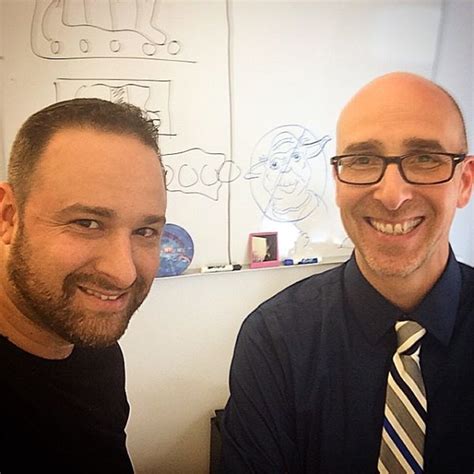A Quote by Alan Cooper
Run for your lives-the computers are invading. Awesomely powerful computers tackling ever more important tasks with awkward, old-fashioned interfaces. As these machines leak into every corner of our lives, they will annoy us, infuriate us, and even kill a few of us. In turn, we will be tempted to kill our computers, but we won't dare because we are already utterly, irreversibly dependent on these hopeful monsters that make modern life possible.
Related Quotes
Everything is being run by computers. Everything is reliant on these computers working. We have become very reliant on Internet, on basic things like electricity, obviously, on computers working. And this really is something which creates completely new problems for us. We must have some way of continuing to work even if computers fail.
In our age of individualism, we see computers as ways through which we can express our individuality. But the truth is that the computers are really good at spotting the very opposite. The computers can see how similar we are, and they then have the ability to agglomerate us together into groups that have the same behaviours.
Science fiction does not attempt to predict. It extrapolates. It just says, "What if?" not what will be? Because you can never predict what will happen, particularly in politics and economics. You can to some extent predict in the technological sphere - flying, space travel, but even there we missed badly on some things, like computers. No one imagined the incredible impact of computers, even though robot brains of various kinds but the idea that one day every house would have a computer in every room and that one day we'd have computers built into our clothing, nobody ever thought of that.
Computers get better, faster than anything else ever. A child's PlayStation today is more powerful than a military supercomputer from 1996. But our brains are wired for a linear world. As a result, exponential trends take us by surprise. I used to teach my students that there are some things, you know, computers just aren't good at like driving a car through traffic.
Simple molecules combine to make powerful chemicals. Simple cells combine to make powerful life-forms. Simple electronics combine to make powerful computers. Logically, all things are created by a combination of simpler, less capable components. Therefore, a supreme being must be in our future, not our origin. What if "God" is the consciousness that will be created when enough of us are connected by the Internet?!!
With genetic engineering, we will be able to increase the complexity of our DNA, and improve the human race. But it will be a slow process, because one will have to wait about 18 years to see the effect of changes to the genetic code. By contrast, computers double their speed and memories every 18 months. There is a real danger that computers will develop intelligence and take over. We urgently need to develop direct connections to the brain so that computers can add to human intelligence rather than be in opposition.


































